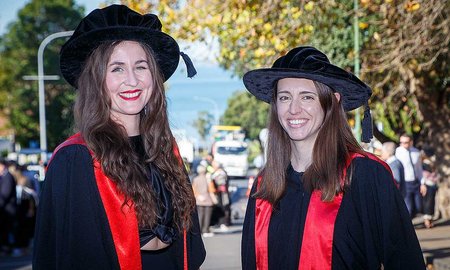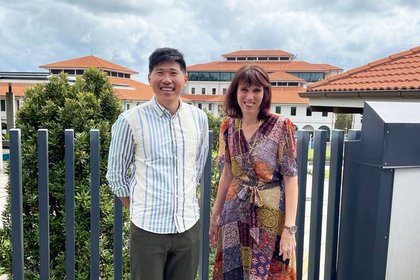
Andrew Xia with Discipline Leader of the Nutrition and Dietetics programme Professor Rozanne Kruger.
As the university's Nutrition and Dietetics programme celebrates its 10-year anniversary, Andrew looks back fondly on his time completing his master’s.
“I am very proud to be part of the first cohort of students in the programme. It provides a good balance between theory and practice and the longer I work as a dietitian, the more I appreciate the reflective practice the programme taught me. For anyone who wants to help people form positive relationships with food and wellbeing, a career in nutrition and dietetics would be a meaningful and rewarding role.”
Andrew now works part-time as an Advanced Clinical Dietitian at Te Toka Tumai Te Whatu Ora – Auckland District Health New Zealand, specialising in critical care and surgical nutrition. He balances this with being a part-time doctoral student and says his choice to pursue a PhD at Massey was natural after enjoying his dietetic training with the university.
“During my time in the programme 10 years ago, I built a great academic relationship with Professor Rozanne Kruger and Professor Gil Hardy as I completed my master’s thesis. Their support in my learning and development was tremendous. The warmth Massey emanates also had me wanting to return. Everyone in the department is always so welcoming, enthusiastic and supportive.”
“When I approached Professor Kruger and Professor Hardy with my research idea, I was thrilled that they were interested as they have a wealth of knowledge and experience in clinical nutrition research. Together with Professor David Rowlands’ expertise in physiology and stable isotope tracer techniques, we form a well-balanced research team,” Andrew says.
His doctoral studies will explore the nutritional response to chyme reinfusion therapy. Chyme is a gut output and when high levels are released through the stoma, an artificial opening in the stomach that connects to the digestive system, it can result in intestinal failure leading to dehydration and malnutrition.
Andrew says his research will include investigating the use of an automated device to reinfuse the highly nutrient chyme collected in the stoma bag into the unused gut lower down to treat this.
“The effects of chyme reinfusion on the body’s ability to digest, absorb and utilise nutrients in the unused gut are currently unknown. This will be the first study to use stable isotope tracer protocols to determine the nutritional response and impact of chyme reinfusion therapy on protein and fibre metabolism. It will also guide us to develop diets to help patients return to eating quickly without relying on long-term intravenous feeding, improve muscle mass and restore colon function.”
Data collection and collaboration are two areas that Andrew is most looking forward to in his research.
“We are fortunate to be able to collaborate with world-renowned experts in this field from Texas A&M University, who will help us to refine our protocols, prepare research materials and perform sample analysis. I’m excited for the outcome as I believe the results can greatly improve health outcomes and reduce cost.”
Earlier this year, Andrew got to attend JUMPstart in Germany, an educational programme led by global healthcare company Fresenius Kabi. He was one of only 20 people accepted from an international pool of applicants for this training which focused on energising the research in clinical nutrition. The programme involved an initial online training segment before Andrew travelled to Germany to attend advanced training in person with the Scientific Committee, made up of five senior research experts in the field of clinical nutrition.
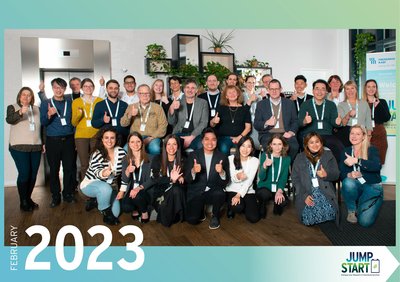
The 2023 JUMPstart cohort.
Andrew says he was grateful to have the opportunity to attend as a representative of Aotearoa New Zealand.
“My time in Germany was an unbelievably surreal but humbling experience. Not only did I have the chance to meet and learn from the Scientific Committee, but I was able to network with 19 other attendees from all over the world. Being early in my research career, it was an honour and a privilege to be welcomed into the global clinical nutrition research community.”
During the programme, Andrew received a comprehensive introduction to the research process as well as being involved with in-depth discussions with the committee members on how to critically appraise the latest research in clinical nutrition. He says the results from his time in Germany are invaluable.
“As part of our time with the programme, we presented our research proposal to the committee and received immediate feedback. With this valuable feedback on board, I now have the opportunity to submit a full proposal in June for the chance of winning a €250,000 JUMPstart research grant for my PhD project.”
Andrew has also received a Massey University Doctoral Scholarship which he says has been a great help for him and his family.
“The scholarship allows me to focus on my studies without worrying about money. The flexibility of studying part-time also allows me to continue with my current clinical role. While it’s never easy to juggle two demanding roles, the department and my supervisors have been so helpful and supportive. I’d like to take this opportunity to thank my supervisors Professor Kruger, Professor Hardy and Professor Rowlands for their support and guidance. I appreciate their unceasing encouragement and guidance over the past 12 months. They have made the journey so far very enjoyable, and I have learned so much!”
Interested in studying Nutrition and Dietetics?
Related news
A decade of mastering Nutrition and Dietetics
The College of Health recently celebrated the 10-year anniversary of the Nutrition and Dietetics major within the Master of Science.
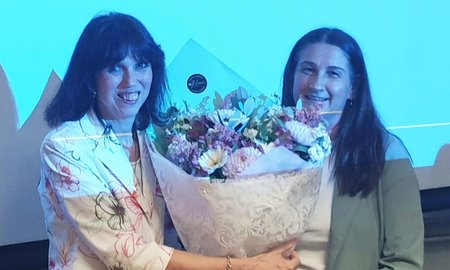
Muscle loss disease recognised in 40 per cent of residents living in three aged care facilities
Sarcopenia, a disease resulting in loss of muscle mass, has been described amongst aged care residents in New Zealand for the first time as a result of a journal article written by Massey academics.
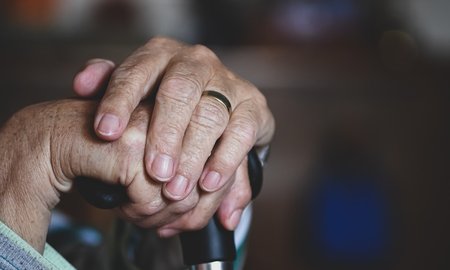
PhD graduates tackle New Zealand’s obesity epidemic
Diet is one of the key drivers of the global obesity epidemic. Doctoral graduates Nikki Renall and Sophie Kindleysides both chose to research different aspects of this issue for their PhD studies.
